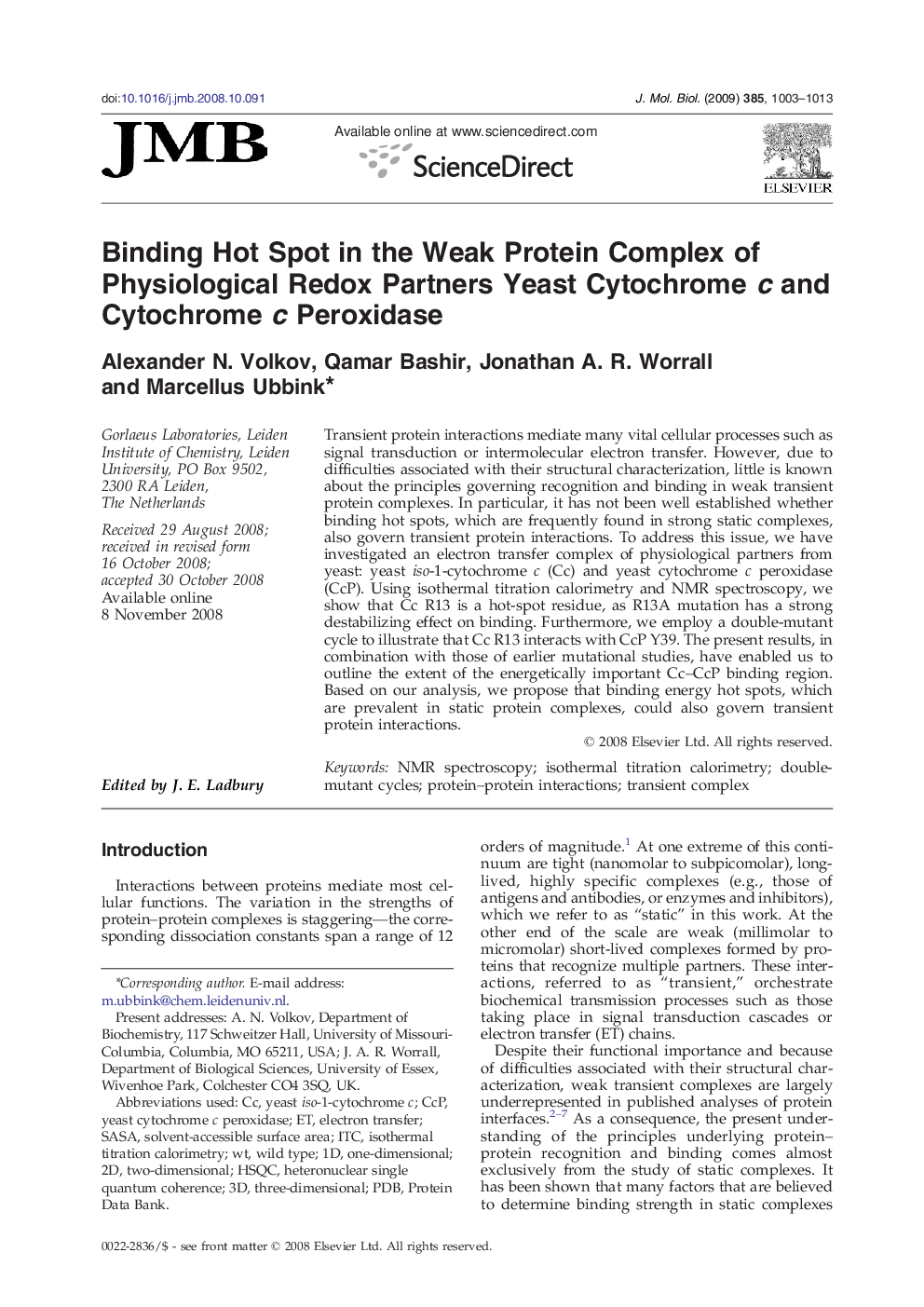| کد مقاله | کد نشریه | سال انتشار | مقاله انگلیسی | نسخه تمام متن |
|---|---|---|---|---|
| 2186813 | 1096079 | 2009 | 11 صفحه PDF | دانلود رایگان |

Transient protein interactions mediate many vital cellular processes such as signal transduction or intermolecular electron transfer. However, due to difficulties associated with their structural characterization, little is known about the principles governing recognition and binding in weak transient protein complexes. In particular, it has not been well established whether binding hot spots, which are frequently found in strong static complexes, also govern transient protein interactions. To address this issue, we have investigated an electron transfer complex of physiological partners from yeast: yeast iso-1-cytochrome c (Cc) and yeast cytochrome c peroxidase (CcP). Using isothermal titration calorimetry and NMR spectroscopy, we show that Cc R13 is a hot-spot residue, as R13A mutation has a strong destabilizing effect on binding. Furthermore, we employ a double-mutant cycle to illustrate that Cc R13 interacts with CcP Y39. The present results, in combination with those of earlier mutational studies, have enabled us to outline the extent of the energetically important Cc–CcP binding region. Based on our analysis, we propose that binding energy hot spots, which are prevalent in static protein complexes, could also govern transient protein interactions.
Journal: Journal of Molecular Biology - Volume 385, Issue 3, 23 January 2009, Pages 1003–1013